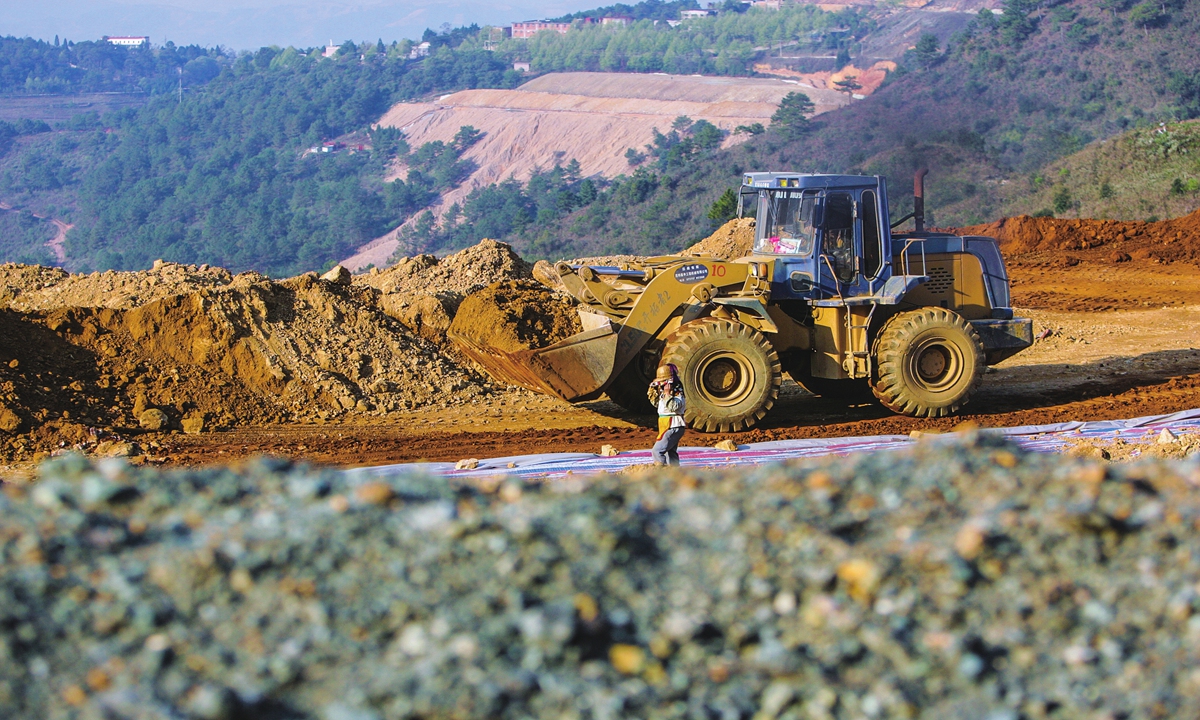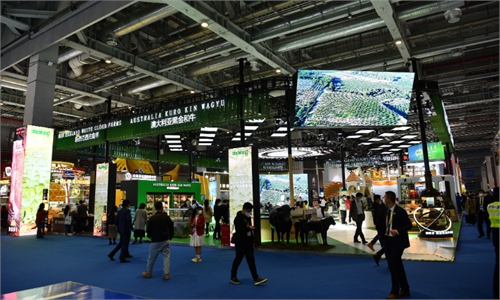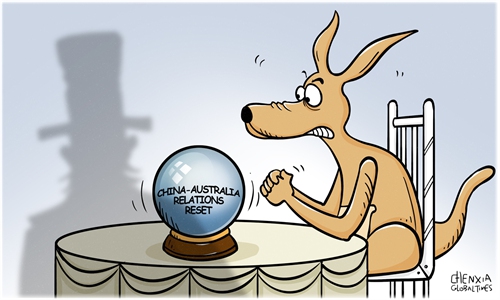Australia signals to limit Chinese investment in critical-mineral industry, not beneficial to bilateral ties: experts

A rare-earth mine in Baoshan, Southwest China's Yunnan Province Photo:VCG
Australia is set to become more selective about who it lets invest in its growing critical-mineral industry. Experts said that the move is aimed at cutting China out of its critical-mineral sector, citing so-called national security concerns and the attempt by Australia to join the US in moving toward decoupling is not beneficial to bilateral relations.
Australian Treasurer Jim Chalmers had asked his department to work with the Foreign Investment Review Board and a range of other stakeholders to undertake a review of foreign investment in sectors including lithium and rare earths, he told a conference in Sydney on Friday, Bloomberg reported.
"We'll need to be more assertive about encouraging investment that clearly aligns with our national interest in the longer term," Chalmers said in his speech.
While Chalmers didn't directly identify China investment as a target of the review, the remarks echoed the speech of Australian Resources Minister Madeleine King who said earlier this month that China's dominance of the market had led to "inherent vulnerabilities of concentrated supply chains."
Australia's resources minister said that while Western countries are unlikely to end their reliance on China for critical minerals including rare earth anytime soon, Australia and the US will continue to work together to boost investment in these minerals in an attempt to offer alternatives.
Australia's latest move comes as the China-Australia trade ties see major turn in coming out of the cold.
In the first 10 months of 2022, imported wheat from Australia accounted for 63 percent of China's total wheat imports, up from the 28 percent of the year of 2021 and 15 percent in 2020, Bloomberg reported, citing Chinese Customs data. China's wheat imports from Australia in the first 10 months of this year also hit highest record by tonnage since 2004.
China is the No.1 export market for Australian iron ore, with more than 60 percent of it going to the Chinese market, making the sector part of the backbone of Australia's economy.
The direction of China-Australia relations depends on Australia's attitude and concrete actions, Bai Ming, deputy director of the international market research institute at the Chinese Academy of International Trade and Economic Cooperation, told the Global Times on Friday.
At this critical moment when China-Australia relations see major turn in coming out of the cold, if Australian politicians follow the US in imposing restrictions on certain industries, it will not be beneficial to the improvement of China-Australia relations, Bai said.
In addition these artificial decoupling attempts also harm the normal functioning of relevant trade and economic cooperation, Bai added.
"China has relatively strong technology in the mining and smelting of rare-earth minerals. If Australia is determined to decouple from China, it will raise the cost of manufacturing," Bai said.
Chinese Foreign Ministry Spokesperson Zhao Lijian also said on November 1 that countries with critical-mineral resources need to play a positive role in keeping relevant industrial and supply chains safe, secure and stable. Countries need to jointly step up to their due responsibilities in the global supply of relevant minerals, and ensure the normal functioning of relevant trade and economic cooperation.
Meanwhile, no one should use economic matters as political tools or weapons, destabilizing the global industrial and supply chains or punch the existing world economic system. China will remain an integral part of the international industrial division of labor and cooperation and strive to keep the world economy and international trade stable and diversified, said the spokesperson.
Global Times



